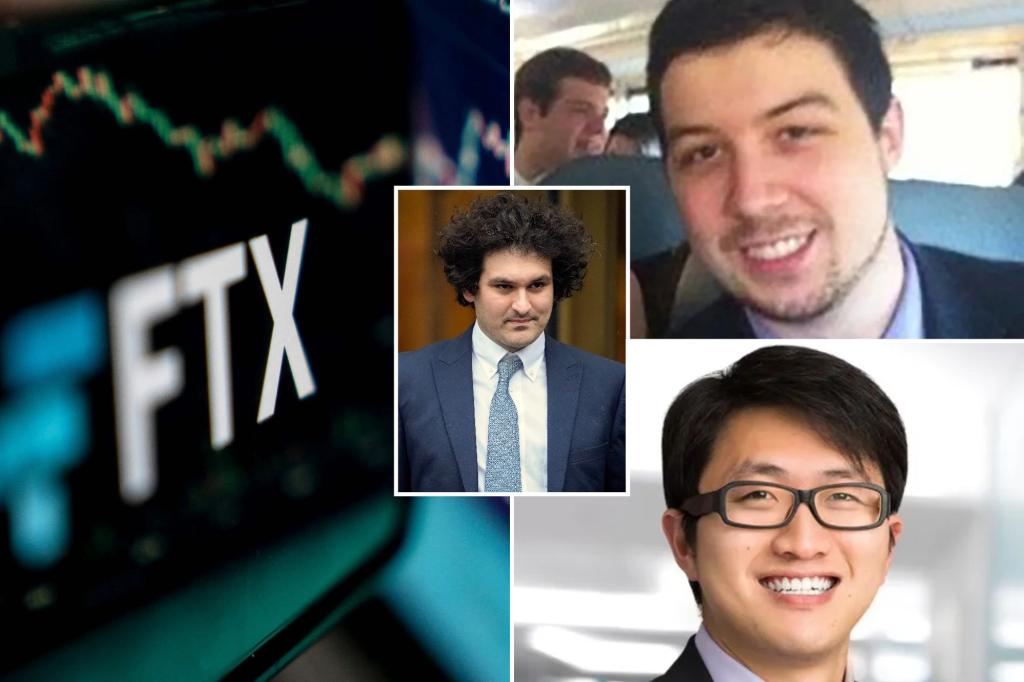Some of Sam Bankman-Fried’s former staffers from his now-bankrupt FTX have reportedly struggled to land another job and have battled depression since the cryptocurrency exchange’s stunning downfall.
Natalie Tien, who led public relations for FTX and was also Bankman-Fried’s executive assistant, saw at least $500,000 in personal investments tied up in FTX and various crypto coins vanish upon FTX’s collapse in November 2022, according to the Wall Street Journal.
Tien told the Journal that in the months after Bankman-Fried was found out for having swiped FTX user funds to plug an $8 billion debt at sister company and failing hedge fund Alameda Research, she suffered from depression and would cry randomly in public, including in a New York City grocery store.
Tien attended Bankman-Fried’s trial last fall in an effort to get closure, but couldn’t help feeling saddened when her ex-boss was sentenced to 25 years in prison on Thursday.
Judge Lewis Kaplan said during sentencing that the 32-year-old former billionaire “presented himself as the good guy” in favor of “appropriate regulation of the crypto industry” — but that his friendly persona was just an “act.”
Kaplan said Bankman-Fried had an “apparent lack of any real remorse,” and also ordered the fallen mogul to pay back more than $11 billion to FTX’s users, investors and lenders.
Bankman-Fried’s parents had urged the judge to give him a lighter sentence because he showed signs of being on the autism spectrum.
“He’s a brilliant person, and his talents could be better used elsewhere,” Tien told the Journal.
Can Sun, FTX’s former general counsel, has also struggled to reconcile with what happened to a company that, at its peak, was worth $40 billion.
“It’s like, what the hell was going on? It was not apparent at all from what I was seeing in the office,” Sun said, according to the Journal.
Neither Tien nor Sun were accused of any crimes, the Journal reported.
Sun reportedly found out about the crime on Nov. 7, 2022, when other FTX executives pulled him into a meeting room to talk about raising emergency funds — at which point he learned that billions of dollars were missing.
Later, when Sun was on a walk with Bankman-Fried around his Bahamas apartment — where he was arrested in December 2022 — the FTX chief asked if there were potential legal justifications for Alameda’s use of customer funds, according to the Journal.
Sun resigned the next day.
He told the Journal that he has since struggled to find work as FTX’s reputation has followed him throughout his job search.
One big crypto firm refused to meet with Sun, citing his connection to FTX, according to the Journal, though he was eventually able to land a gig as head of legal affairs and compliance for Backpack, a startup crypto exchange led by an ex-Alameda employee.
“When this whole thing happened, Sam was never straight with me or anyone else,” Sun told the Journal, adding that he was angered that Bankman-Fried has never admitted to knowingly misappropriating customer funds.
Sun later testified against his former boss. He denied doing anything wrong, but agreed to a plea deal out of an abundance of caution, as he might have unknowingly approved deals involving misappropriated funds, according to the Journal.
Bankman-Fried had spent his trial characterizing FTX’s collapse as a failure of risk management rather than a crime.
According to testimony from the government’s star witness, Caroline Ellison — Bankman-Fried’s ex-girlfriend and business partner — Bankman-Fried once said that “the only moral rule that matters was what maximized utility,” meaning “whatever generates the greatest good for the greatest number of people.”
“He said that he was a utilitarian and he believed that the ways that people try to justify rules like ‘Don’t lie,’ ‘Don’t steal,’ under utilitarianism didn’t work,” Ellison, 28, told jurors in Manhattan federal court.
Kaplan cited the testimony Thursday when he handed down the sentence, which was “for the purpose of disabling him — to the extent that can be done — for a significant amount of time.”
Bankman-Fried’s defense lawyers Marc Mukasey and Torrey Young did not immediately respond to The Post’s request for comment.
“People think he’s your average mustache-twirling villain. I don’t think that’s the case … He could have stolen a lot more money for himself if that’s what he really wanted to do,” former Alameda COO Andrew Croghan told the Journal.
Even still, Croghan said, he can’t fathom what has ensued since his days at Alameda.
“This was someone I believed in, someone I trusted,” Croghan said. “So much collateral damage and negativity came out of this.”
This article was originally published by a nypost.com . Read the Original article here. .

